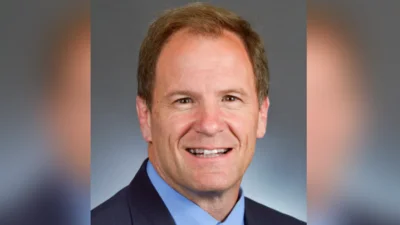The Congressional Record is a unique source of public documentation. It started in 1873, documenting nearly all the major and minor policies being discussed and debated.
“Section 230 of the Communications Act (Executive Calendar)” mentioning Amy Klobuchar was published in the Senate section on pages S1865-S1866 on April 12.
Of the 100 senators in 117th Congress, 24 percent were women, and 76 percent were men, according to the Biographical Directory of the United States Congress.
Senators' salaries are historically higher than the median US income.
The publication is reproduced in full below:
Section 230 of the Communications Act
I recently spoke on the Senate floor about the important issue of free speech. Today, I would like to speak on the power of Big Tech to censor free speech.
It has been 25 years since section 230 of the Communications Act was signed into law. This law grants wide-sweeping immunity to interactive computer services that host third-party content.
The goal of section 230 at the time was laudable. The internet was in its infancy, and content being posted to message boards by third parties was leading to litigation that threatened the spread of free speech and expression. Section 230 was enacted to encourage free speech, while giving companies the ability to remove illegal and obscene materials.
Section 230 and the legal shield it offers helped to enable the internet to grow into what we know this very day. However, interactive computer services are no longer struggling companies but some of the largest corporations in the world today. Would you believe that when section 230 was signed into law, the words ``Google,'' ``Facebook,''
``Twitter,'' and ``YouTube'' did not even exist as words or companies? Today, they are giant, dominant tech companies.
Many argue that these private companies have their own terms of service and are able to enforce them as they wish and also that they are not covered under the First Amendment. Yet, these platforms are now the new public square, where it is important that all voices and viewpoints are able to be heard.
With the immunities that these companies have and the importance of dialogue on their platforms, arguably they are in effect state actors, and therefore First Amendment protections should apply to user-
generated content.
The size and power of these companies also contribute to their ability to censor speech and undermine the First Amendment. Google controls 87 percent of search, Facebook has 2.8 billion monthly active users, 500 million tweets are sent on Twitter each day, and over 1 billion hours of videos are watched on YouTube every day.
When a campaign has monopoly power, it no longer is constrained by normal market forces. If these platforms had competitors, consumers could choose alternatives when they disagree with the terms of service or moderation policies. However, right now, the only choice consumers have is to take it or leave it.
Section 230 appears to compound this problem. Big Tech has no competitors and is immune from liability. These companies are unaccountable to their customers, the courts, and the government. If not for their monopoly power and section 230 immunity, these companies might not be involved in the actions and the censorship we see today. These platforms are where people communicate online, and there are no real alternatives.
This innovation has democratized our political system. I think that is good. Yet, there are people who don't like that every person is able to get their views out, and they want to interfere with and censor those views. We cannot stand for this cancel culture and the interference with free speech.
Entrepreneurs want to challenge these big tech companies. Unfortunately, the system is rigged against the little-guy startup. These companies can remove your website from the internet, delete your app from the app store, and permanently ban you from their platforms. These companies can also remove competitors or those they disagree with, largely with no recourse.
Millions of small business owners use tech platforms to operate their business. It has been a big boost to our economy over the last 25 years. Many business owners have been censored, banned, and demonetized. This can be done without warning, no explanation whatsoever, and many times without any meaningful due process.
Our antitrust regulators need to take a harder look at the actions of Big Tech. I recently introduced legislation with Senator Klobuchar to increase resources for FTC and DOJ antitrust enforcement. This legislation would provide an immediate boost to these Agencies' effective competition responsibilities.
Right now, there are essentially five companies within just the United States that determine what can and cannot be viewed by the American public. It is becoming increasingly clear that these companies are more beholden to cancel culture and not to the free speech principles that this country was founded upon.
When I talk about what these Agencies--the FTC and the DOJ--ought to be doing, I am not excluding anything that this Congress ought to be doing beyond what these Agencies have a responsibility to do.
So I go back to a famous quote by Justice Brandeis:
If there be time to expose through discussion the falsehoods and fallacies, to avert the evil by the processes of education, the remedy to be applied is more speech, not enforced silence.
It is time that we examine the need for section 230 immunity--that is beyond what we expect the DOJ and FTC to do--examine the need for section 230 immunity and to what extent these tech companies are abusing their monopoly power. It is time that these companies stop arbitrarily deciding what speech is acceptable for our country and the 335 million Americans
I yield the floor.
The PRESIDING OFFICER. The Senator from Texas.





 Alerts Sign-up
Alerts Sign-up